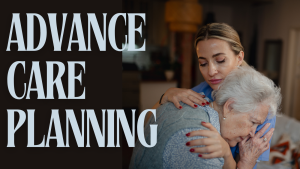
Advance care planning is a voluntary process that involves helping people to plan and express for their future care and support needs, including medical treatment, and therefore to exercise their personal autonomy as far as possible. This should be offered to everyone who is at risk of losing capacity (for example through progressive illness), as well as those who have fluctuating capacity (for example through mental illness).
Some approaches involve the production of legally binding advance decisions, which only cover decisions to refuse medical treatment, or the appointment of an attorney.
An advance statement is a written statement that sets down your preferences, wishes, beliefs and values regarding your future care. The aim is to provide a guide to anyone who might have to make decisions in your best interest if you have lost the ability to make or communicate decisions.
An advance statement can cover any aspect of your future health or social care. This could include:
You can make sure people know about your wishes by talking about them. (e.g., “I’d prefer to avoid aggressive treatments if they won’t improve my quality of life”). By writing your advance statement down, you can help to make things clear to your family, carers and anybody involved in your care. You can write it with support from relatives, carers, or health and social care professionals.
No. An advance decision (also known as a living will, or advance decision to refuse treatment) is a decision you can make now to refuse specific treatments in the future. An advance decision is legally binding, as long as it meets certain criteria. Read more about advance decisions to refuse treatment
An advance care plan can cover areas such as the person’s thoughts on different types of care, support or treatment, financial matters, and how they like to do things (for example shower rather than bath). People using health and social care services who may (now or in the future) lack mental capacity to make specific decisions, as well as their families, friends, carers and other interested parties. As part of this process:
An advance decision to refuse treatment (sometimes referred to as a living will and sometimes abbreviated to ADRT) is a decision an individual can make when they have capacity to refuse a specific type of treatment, to apply at some time in the future when they have lost capacity. It means that families and health professionals will know the person’s decisions about refusing treatment if they are unable to make or communicate the decisions themselves.
An advance decision must be valid and applicable before it can be legally binding. For example, one of the conditions is that the individual is aged 18 or over at the time the decision is made. To establish whether an advance decision to refuse treatment is valid and applicable, practitioners must have regard to sections 24 to 26 of the Mental Capacity Act 2005. If the advance decision purports to refuse life-sustaining treatment, additional requirements apply. (See Chapter 9 of the Mental Capacity Act Code of Practice.)
A legal instrument that allows a person (the ‘donor’) to appoint one or more people (known as ‘attorneys’) to make decisions on their behalf.
There are 2 types: health and welfare, and property and financial affairs, and either one or both of these can be made.
Planning things like what type of funeral you want and who to leave your belongings to can make your final days easier, giving you more time with family and friends. Planning Ahead -What matters most to you? https://advancecareplanning.org.uk/planning-ahead There may be many decisions to make about the way you live your life now and in the future. This tool is only about decisions that affect your medical care priorities. It includes some of the choices some people need to make about treatment and care at the end of life. It will help your loved ones if you have already thought about some of these decisions and let them know what matters most to you.
© The Uncensored Patriots - 2025. All rights reserved. Web design and maintenance by Consiliuma. Articles by TUP Community Members.